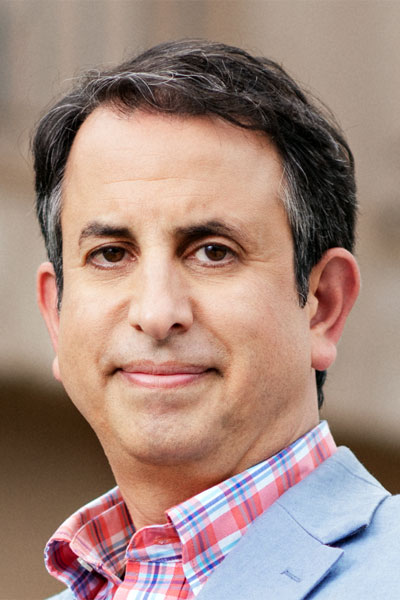FDA Poised to Order Juul Off the Market
- Featured News This Week
- June 22, 2022
- 0
- 6 minutes read


The U.S. Food and Drug Administration is preparing to order Juul Labs to take its e-cigarettes off the U.S. market, reports The Wall Street Journal, citing people familiar with the matter.
The marketing denial order would follow a nearly two-year review of data presented by the vaping company, which sought authorization for its tobacco- and menthol-flavored products to stay on the U.S. market.
The future of Juul Labs has been uncertain since regulators started scrutinizing the company four years ago, when its fruity flavors and hip marketing were blamed for fueling a surge of underage vaping.
The company since then has been trying to regain the trust of regulators and the public. It limited its marketing and in 2019 stopped selling sweet and fruity flavors.
Once the undisputed U.S. market leader, Juul Labs has seen its sales nosedive in recent years.
The FDA has barred the sale of all sweet and fruity e-cigarette cartridges. However, the agency authorized Reynolds American and NJOY Holdings, to keep tobacco-flavored e-cigarettes on the market.
Industry observers had expected Juul to receive similar clearance.

The FDA's misdirected efforts to limit nicotine, ban flavors in vapes, and now order Juul off the market, if fully implemented, will increase death and disease from combustible cigarettes.
Stocks of Altria Group, which owns about a third of Juul Labs, plunged after the news broke. The tobacco giant in 2018 paid $12.8 billion for a 35 percent in the e-cigarette company, valuing Juul Labs at about $35 million. Since then, Juul’s value has plummeted amid the regulatory crackdowns and declining sales. Altria valued its Juul stake at $1.6 billion as of March 31.
Wells Fargo analyst Bonnie Herzog, however, called the sell-off overdone, noting that Juul Labs has options to challenge any marketing denials orders (MDO), citing the example of Kaival Brands, which had its MDOs stayed in court.
With no detail available on the FDA’s rationale, Herzog said it was difficult to know how the agency is thinking about an MDO on Juul in the context of its broader efforts to encourage adult smokers to quit and/or move down the continuum of risk to less harmful “We have a hard time imagining the FDA would categorically remove highly popular e-cig brands without ensuring a suitable off-ramp for users (that isn’t back to combustible cigs),” she wrote in a note to investors.

This isn’t appropriate for the protection of public health, and it isn’t good for the industry. It hurts adult smokers because Juul is a product that is successful in helping smokers switch.
Industry leaders and tobacco harm reduction advocates were aghast by the prospect of an MDO for Juul.
“The FDA’s misdirected efforts to limit nicotine, ban flavors in vapes, and now order JUUL off the market, if fully implemented, will increase death and disease from combustible cigarettes,” said public health expert Derek Yach. They should applaud Juul for their deep investments in science, innovations to end youth vaping, their commitments to reduce the 480,000 annual tobacco deaths in the USA. Let’s hope legal challenges succeed in opposing these measures.”
“For a company that has that has been a standard in this industry and has some of the highest quality products on the market, it’s shocking,” George Cassels-Smith, CEO of Tobacco Technologies, told Tobacco Reporter’s sister publication, Vapor Voice.
“The company has tried hard to move past its early issues of appealing to youth. This isn’t appropriate for the protection of public health, and it isn’t good for the industry. It hurts adult smokers because Juul is a product that is successful in helping smokers switch.”

While [Juul Labs] has certainly been at the epicenter of conflict, the amount of rigorous, peer reviewed science supporting their products’ ability to help smokers quit, raises serious questions about the FDA’s subjective balancing test, and whether public pressure campaigns will steer science policy.
The decision is likely celebrated by some anti-nicotine groups who blame Juul Labs for the rise in teen vaping (which had also declined dramatically in recent years).
Tony Abboud, executive director of the Vapor Technology Association (VTA) told Vapor Voice that he was surprised by the news because the industry had widely expected Juul Labs to receive marketing authorization.
“The reported denial of Juul’s PMTA application is stunning,” said Abboud. “While the company has certainly been at the epicenter of conflict, the amount of rigorous, peer reviewed science supporting their products’ ability to help smokers quit, raises serious questions about the FDA’s subjective balancing test, and whether public pressure campaigns will steer science policy.”
In 2019, Juul Labs announced it was suspending its print, broadcast and online advertising in the United States. That same year it halted the sale of its fruit and dessert flavors—including mango, creme brulee and cucumber—that were seen as a significant lure for teen users. The FDA also recently proposed a rule to ban flavored cigars and menthol in combustible cigarettes. The menthol ban will not yet cover next-generation tobacco products, such as e-cigarettes, but the FDA has the authority to include them if it sees fit.
Juul Labs submitted its PMTAs in July 2020. At the time, the company said its submission included comprehensive scientific evidence for the Juul device and Juul pods in Virginia Tobacco and Menthol flavors at nicotine concentrations of 5.0 percent and 3.0 percent, as well as information on its data-driven measures to address underage use of its products.
